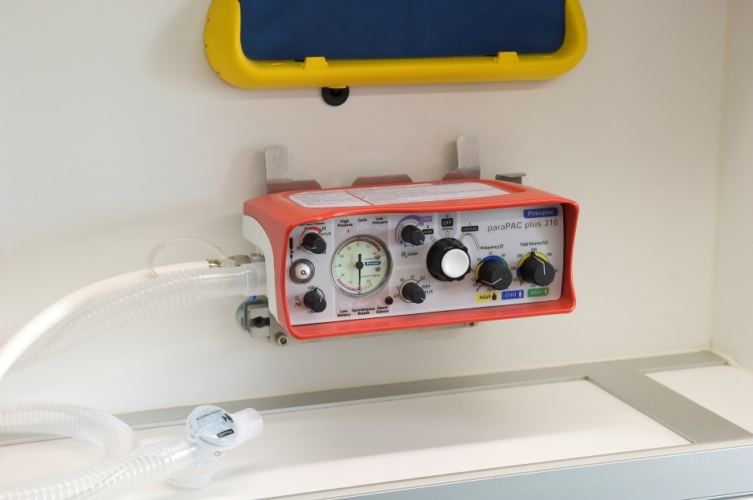
The Ventilator Challenge UK Consortium, which includes Airbus, Ford, Rolls-Royce and Thales, will work with the Smiths Group to ensure the supply of over 10,000 paraPAC plus ventilators.
MORE CORONAVIRUS TECHNOLOGY NEWS HERE
Production is being ramped up at Smiths from hundreds a month to thousands in response to the UK government’s challenge to UK technology and engineering businesses to help save lives in the Covid-19 pandemic.
Already certified and used extensively in the UK and abroad, the paraPAC plus is a lightweight and portable ventilator that delivers oxygen to the lungs to help patients breathe.
Smiths said it is working closely with the Ventilator Challenge UK Consortium to expand its supply chain capability, including its operations in Luton and numerous UK technology and engineering companies across automotive, aerospace, industrial and F1. The company is also in discussions with potential global partners to make its ventilator technology available to support the global fight against Covid-19.
“We are playing a key role working with the Ventilator Challenge UK Consortium to put in place the production and component capability to increase manufacturing of our lightweight portable ventilator as fast as possible,” said Andrew Reynolds Smith, CEO of Smiths Group.
“It is inspiring to work with the very best UK technology and engineering companies with a spirit of grit and determination to deliver these life-saving devices to our incredible health service. I am proud of the tireless work that our people at Smiths and those working across this extraordinary consortium of British companies are doing to make a real difference.”
Commenting on today’s Covid-19 ventilators announcement, Mike Hawes. SMMT chief executive said: “The essential and extraordinary work of this consortium will offer a beacon of hope to our NHS and all of society, and is a shining example of how the wider automotive and other manufacturing sectors can help in this time of crisis.
“The entire sector stands ready to help the national effort in every way possible, from production of critical medical equipment, to supporting delivery of essential supplies, maintaining emergency service vehicles and providing transport for key workers to support the most vulnerable in our communities.”
Led by Dick Elsy, CEO of High Value Manufacturing Catapult, the Ventilator Challenge UK Consortium has spent the past week investigating the production of a range of ventilator design options to meet a high-level specification for a Rapidly Manufactured Ventilator System (RMVS) developed by clinicians and the Medicines and Healthcare products Regulatory Agency (MHRA).
“The work of the consortium in bringing about cross company and union collaboration means that no time will be wasted ‘reinventing the wheel’ when building medical equipment desperately needed now in our NHS,” said Steve Turner, Unite assistant general secretary for manufacturing.




Poll: Should the UK’s railways be renationalised?
All public service companies should be nationalised for many different reasons, particularly railways, not the least because the tax payer has already...